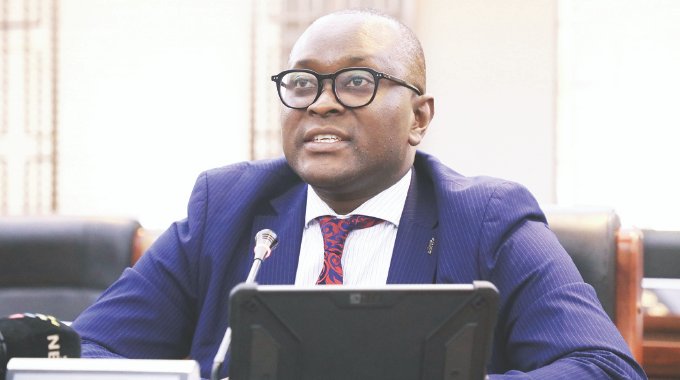Dr Muswere noted that the strategy is informed by national legal frameworks that promote youth empowerment, including the Constitution of Zimbabwe, the Zimbabwe Youth Council Act, and the National Youth Policy (2021). “The strategy is a product of extensive consultations with the private sector, development partners and the youths themselves, aimed at addressing the challenges faced by young people. “The Government is committed to empowering this youth demographic by ensuring access to education and training, political participation, economic opportunities, recreational facilities, and protection from harmful practices. “The strategy recognises both youth in school and out of school, aligning with existing Ministry of Youth programmes that cater for both segments,” said Dr Muswere.
He explained that the strategy comprises five main pillars: Economic Empowerment, Technology and Digital Transformation, Education and Skills Development, Governance, and Health and Well-being.
These are supported by three cross-cutting pillars: Climate Change Adaptation and Mitigation, Gender Equality and Inclusivity, and Governance, Co-ordination and Partnerships. “Under each pillar, the strategy document outlines strategic objectives and suggested interventions to achieve the desired outcomes,” said Dr Muswere.
The strategy is supported by a monitoring and evaluation framework, an implementation matrix, and a communication plan.
Dr Muswere further noted that the monitoring and evaluation plan will be used to assess the performance of programmes, policies and projects implemented by MDAs and other stakeholders in support of the strategy. “Youth will be involved at every stage of the monitoring and evaluation process, while a comprehensive communication plan will raise awareness, engage stakeholders and ensure transparency.
The plan will incorporate local languages and culturally relevant content to reach marginalised groups.
The strategy is also complemented by a resource mobilisation plan,” he said.
As such, Dr Muswere said the Mobilisation Plan will identify and secure essential financial, human and material resources required to support various youth initiatives, including those aimed at the inclusion of marginalised youths.
Meanwhile, the Minister also reported that Government has approved the Principles of the Amendment of the Zimbabwe National Family Planning Council Act (Chapter 15:11), to enhance its effectiveness and relevance by aligning it with current realities in reproductive health and family planning, particularly addressing the needs of adolescents and youth. “Current realities include evolving health needs, demographic shifts, updated policies reflecting the unique reproductive health needs of different population sub-groups and communities, gender equality and rights-based approaches, technological advancement, increased demand for services, male involvement in sexual and reproductive health issues, and the rise of non-communicable diseases,” said Dr Muswere.
He said harmonising the Act with global, regional and national commitments — such as the Sustainable Development Goals (SDGs), the International Conference on Population and Development (ICPD), Family Planning 2030, Vision 2030 and the Public Entities Corporate Governance Act — will strengthen governance, accountability and quality assurance in service delivery.
Dr Muswere also announced that Cabinet has approved the hosting of the African Women Leaders Network 7th Inter-Generational Retreat from 5–7 September this year.
The Retreat, a flagship initiative jointly established by the African Union (AU) and the United Nations (UN), is dedicated to enhancing women’s participation in leadership, in line with the AU’s Agenda 2063 and the UN’s Agenda 2030. “The retreat provides an opportunity for the African Women Leaders Network to formally recognise Zimbabwe’s demonstrated support for women’s leadership, evidenced by constitutional provisions mandating equal rights and opportunities for women in all spheres.
It seeks to promote intergenerational dialogue between women leaders and young women, and to share experiences and strategies for advancing gender equality and women’s empowerment,” said Dr Muswere.
Hopes are high that the retreat will produce actionable plans to address emerging challenges affecting women’s leadership and empowerment in Africa.
It is also expected to enhance Zimbabwe’s visibility as a champion of gender equality and women’s leadership, positioning the country as a thought leader on the continent. “It will provide an opportunity to showcase Zimbabwe’s progress on gender equality, attract potential partnerships and investments from international development organisations and boost local economic activity — particularly in the tourism and hospitality sectors,” said Dr Muswere.
Share on FacebookPost on XFollow usSave
All Zim News
All Zim News is a central hub for all things Zimbabwean, curating news from across the country so no story is missed.
Alongside aggregation, our team of nationwide reporters provides real-time, on-the-ground coverage.
Stay informed and connected — reach us at admin@allzimnews. com. 🔗 Read Full Article
All Zim News is a central hub for all things Zimbabwean, curating news from across the country so no story is missed.
Stay informed and connected — reach us at admin@allzimnews. com.
